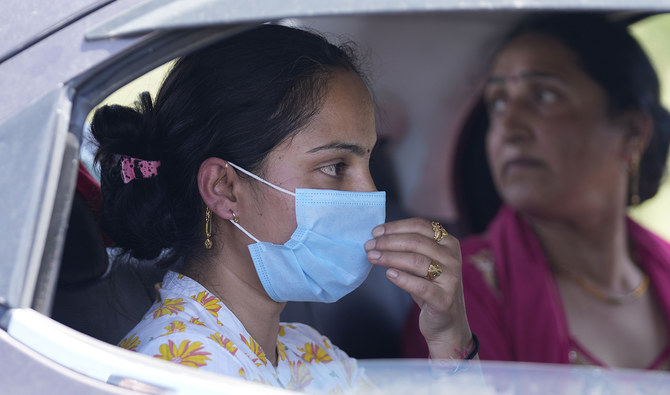NEW DELHI: Members of a minority Hindu group in Kashmir Valley have started to leave the area, citing fear amid an intensifying string of killings targeting the community.
Indian-controlled Kashmir has been witnessing a wave of deadly attacks since August 2019, when the government abrogated the Muslim-majority region’s limited constitutional autonomy to bring it under the direct rule of New Delhi.
On Tuesday, gunmen killed a Hindu schoolteacher in Kulgam district. On Thursday, a Hindu bank employee was shot dead in the same area. The killings came less than a month after a government employee, another member of the community, was murdered in nearby Budgam.
Since May, members of the community have been holding protests against the local administration, demanding relocation to a safer place, but as no steps have been undertaken by the government, many have decided to leave on their own.
“The local and the central government has failed to secure the lives of religious minorities staying in Kashmir Valley,” Sanjay Tickoo, who heads the Kashmiri Pandit Sangharsh Samiti, the largest Kashmiri Pandit organisation in the region, told Arab News on Friday.
“Around 3,000 Kashmiri Pandit employees have left the valley during the last two days and the remaining will go in the next couple of days.”
Some 5,000 members of the Pandit community have been living in the valley since 2010 — two decades after about 200,000 of them fled Kashmir when an anti-India rebellion broke out. They returned under a government resettlement plan that provided jobs and housing.
Jagat Bhat, a Kashmiri Pandit and government employee who was working in Srinagar, the main city of Kashmir Valley, said the resettlement plan was “an invitation to death.”
He told Arab News that 10 families from his neighborhood alone moved out to nearby Jammu district on Thursday.
“The situation is very bad and those who can are leaving the valley for safer places,” he said.
“We left the valley with whatever stuff we could carry early in the morning on Friday,” Rubon Sapro, a schoolteacher, said. “The situation in the valley has worsened and there is a great sense of fear among Hindu minorities. They are leaving the valley in hordes.”
Sunit Bhat, who lives in a transit camp, one of the seven camps that the government built in 2010 to accommodate the Pandit community under the resettlement plan, said he is now only waiting to get his son’s school certificate before the family can move.
“Already many have left and those who are still in the valley will move out in a day or two after finishing local formalities,” he told Arab News. “I will leave the valley most probably tomorrow morning. I cannot think of returning to the valley again.”
While earlier this week a local spokesperson of India’s ruling Bharatiya Janata Party, Dr. Hina Bhat, said relocation of Pandits would be against the government’s policy, another party official blamed the current instability on neighboring Pakistan.
The Indian government has been invested in projecting the majority-Muslim region as a stable, integrated part of India after revoking its autonomy 2019.
“The way the situation has been improving in the valley in the last four years, there has been an atmosphere of frustration in Pakistan, and they have been trying to vitiate the atmosphere in the valley,” Manzoor Bhat, BJP spokesperson in Srinagar, told Arab News. “Pakistan wants to sabotage the peace in Kashmir.”
Kashmir has been divided between India and Pakistan since their independence from British colonial rule in 1947. Both countries claim the region in its entirety and have fought two of their three wars over control of Kashmir.
India has accused Pakistan of arming and training rebel groups, which Pakistan denies.














